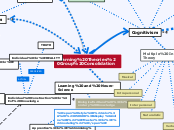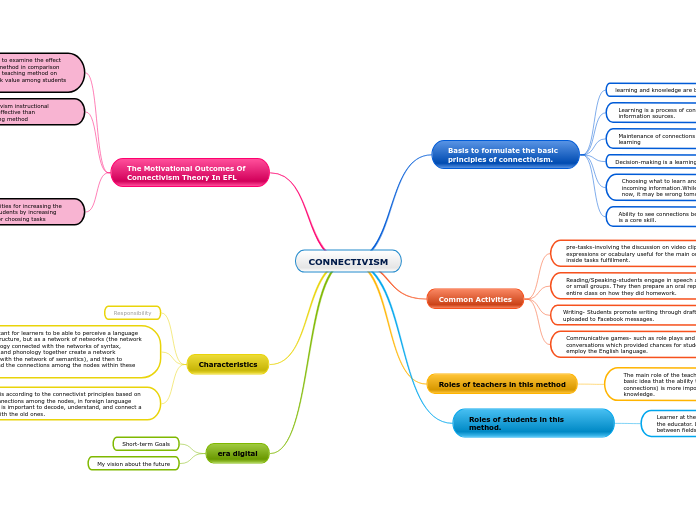por Marcus Botolo 6 anos atrás
261
Learning Theories Group Consolidation
Connectivism is a modern learning theory that highlights the role of Internet technologies in enabling global information sharing and collaborative learning. Constructivism emphasizes the idea that learners build mental models to comprehend the world, while Cognitivism views the mind as an information processor that should be understood.









